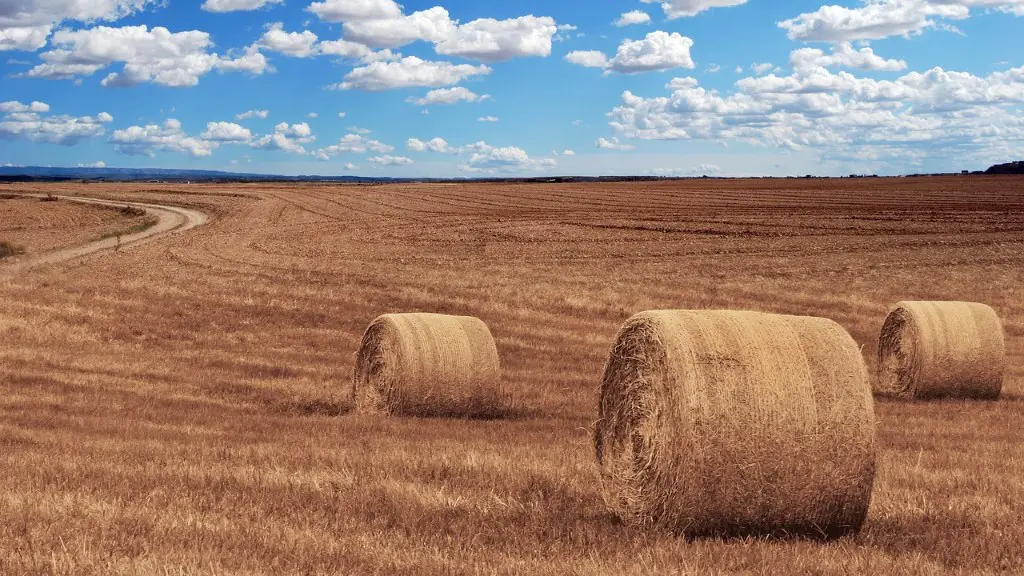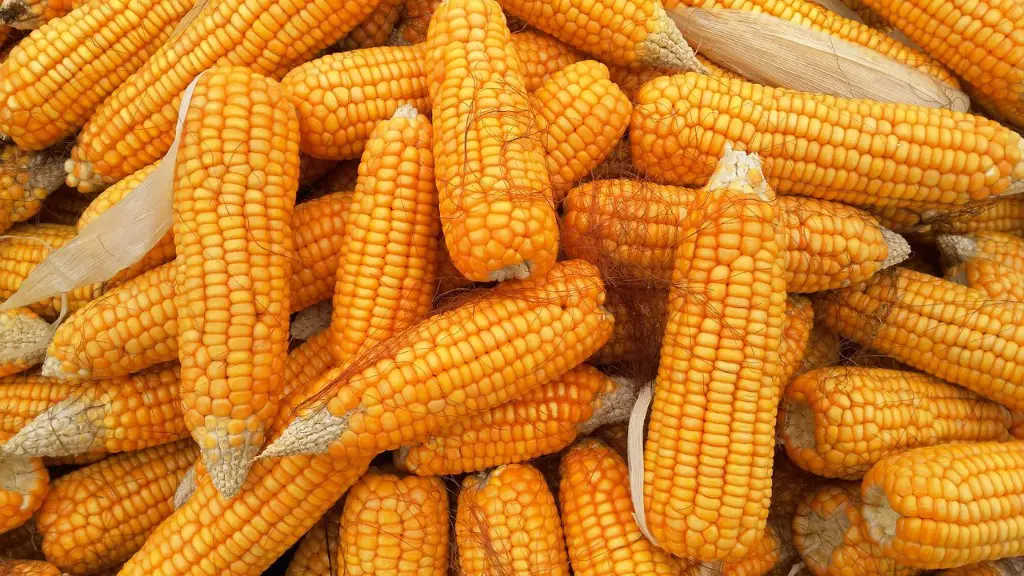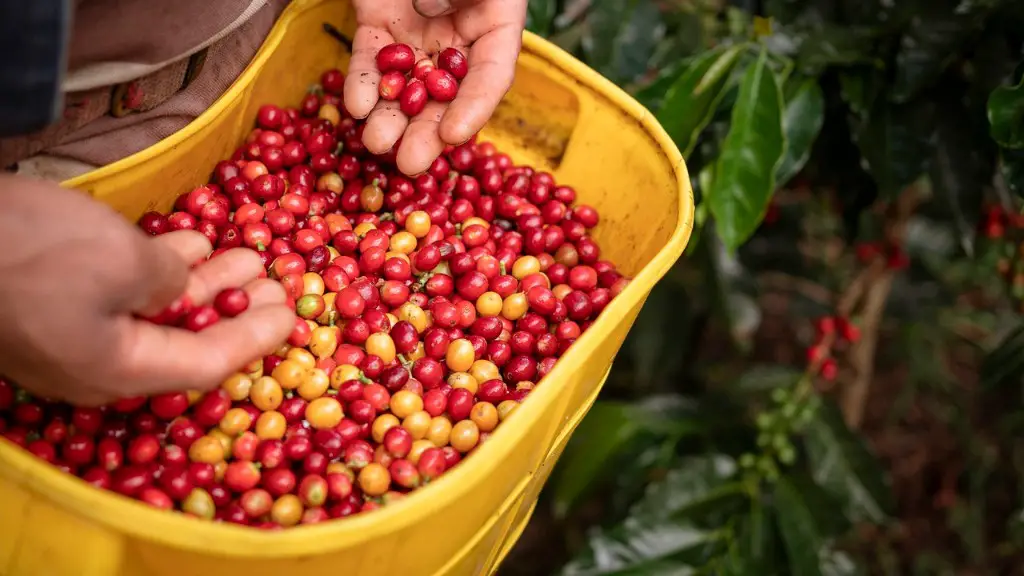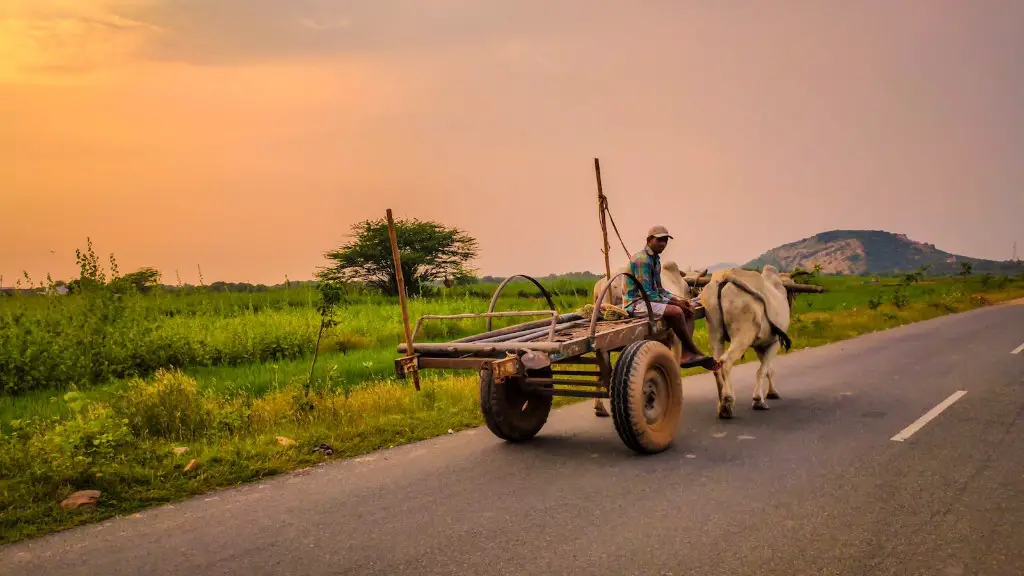It’s hard to imagine, but what would happen if agriculture stopped? Farming is such a integral part of human society, providing us with the food we need to survive. If agriculture stopped, it would have a ripple effect on the entire world. The human population would decrease rapidly, as we would not be able to sustain ourselves without food. With fewer people, there would be less demand for goods and services. The global economy would crashing, leading to widespread poverty and chaos. Without agriculture, the world would be a very different place.
If agriculture stopped, the world would starve.
What would happen if there was no agriculture?
The most likely answer is something between 2 million and 20 million, as without agriculture, we would be restricted to a semi-nomadic lifestyle. What is certain is that in such a world, with no domesticated livestock, there would be millions more elephants and hundreds of thousands more lions, tigers and whales.
Agriculture is the backbone of civilization. It is the process of producing food, fiber, and other goods by raising plants and animals. Agriculture has been around for thousands of years, and it is the basis for human survival.
Without agriculture, people would be naked, lacking the nutrients they need for survival. They would also be unprotected and hungry. They wouldn’t have the clothes on their back, the towels in their bathroom, or the sheets on their bed. They wouldn’t be able to enjoy their daily meals or have the protection of a sturdy, well-furnished home.
Agriculture is essential for human life. Without it, we would be lost.
Why do we need agriculture
Agriculture is the world’s largest industry. It employs more than one billion people and generates over $13 trillion dollars worth of food annually. Pasture and cropland occupy around 50 percent of the Earth’s habitable land and provide habitat and food for a multitude of species.
It is impossible to imagine a world without agriculture. Agriculture satisfies the basic need for food for millions of people and live stocks. It provides raw materials for agro-based industries. Export of agricultural produces help in the development of Country’s economy.
Why was agriculture so important to humans?
Agriculture is a system of farming that enables people to grow all the food they need in one place. This system of farming led to massive population growth, creating cities and trade. Agriculture allowed for the domestication of plants and animals, which led to the development of civilizations.
No-till farming is a type of agriculture where the soil is not turned over before planting. This type of farming reduces soil erosion, increases soil biological activity and increases soil organic matter. These benefits can lead to additional economic gains for farmers over time.
How agriculture change the life?
Agriculture has led to many important changes in human civilization. Perhaps the most significant change is that it allowed humans to settle down in one place, instead of moving around as nomads. This allowed them to grow their own food, which was a much more reliable source of sustenance than hunting and gathering. agriculture also allowed for the development of complex civilizations, with all the attendant arts, sciences, and technologies.
Agriculture plays a significant role in society and the economy. It provides food for people and animals, raw materials for products, and employment for many people. It also contributes to the economy through trade.
Why is agriculture important in economy
Agriculture plays a vital role in the economic growth and development of a country. It is the backbone of the country’s economy and provides food and raw materials for industries. It is a major source of employment and income for the people. It also helps in the development of other sectors of the economy.
The agricultural sector is an important part of the country’s economy and contributes significantly to GDP, food security, employment and poverty alleviation. The sector provides employment to around 385 percent of the labour force and is an important source of livelihood for many rural people. The sector is also one of the largest employers of women in the country. The government is working to improve the sector’s productivity and competitiveness through a number of initiatives, including the Pradhan Mantri Fasal Bima Yojana and the Pradhan Mantri Krishi Sinchai Yojana. The government is also working to create an enabling environment for the private sector to invest in the agricultural sector.
What are the 10 benefits of agriculture?
Agriculture is the backbone of Nigeria’s economy and it plays a vital role in the country’s development. It is the main source of livelihood for the majority of the population and it contributes significantly to the nation’s GDP. Agriculture also provides food for the Nigerian people and raw materials for industries.
The sector employs a large part of the country’s workforce and it is a major source of foreign exchange. Agriculture also has a positive impact on the environment and it helps in the preservation of biodiversity.
Agriculture is the backbone of our civilization and without it, we would starve and the modern world would come to a stop. That’s why sustainable agriculture, climate-smart agriculture, modern genetics and improved farming methods are needed to ensure global food security.
What are 3 benefits of agriculture
Agriculture is the backbone of human survival. Without it, we would not have the food, shelter, and clothing that we need to live. Raw materials for everything from food to clothing to shelter come from agriculture, and without it, we would be lost.
More abundant food supplies could support denser populations, and farming tied people to their land. Small settlements grew into towns, and towns grew into cities. Agriculture produced enough food that people became free to pursue interests other than worrying about what they were going to eat that day. This led to the rise of civilizations and the development of new technologies and ways of thinking.
Could no till agriculture help reduce global warming?
No-till farming is a type of farming that helps mitigate climate change. This is because it reduces the amount of fossil fuel-powered machinery that is needed, and it also helps the soil to hold onto carbon. This prevents the release of greenhouse gas emissions during the process of tillage. No-till farming can help save fuel and reduce emissions, making it a more sustainable option for agriculture.
No-till and strip-till are two very effective methods of production for corn, cotton, soybean, and wheat. These methods help to reduce soil erosion and improve soil health. Over half of producers have used one of these methods at least once over a four year period, proving its widespread effectiveness and popularity.
Warp Up
If agriculture stopped, the world would starve.
If agriculture stopped, the human race would eventually die off. Agriculture is necessary to grow food, and without food, people would starve to death.




